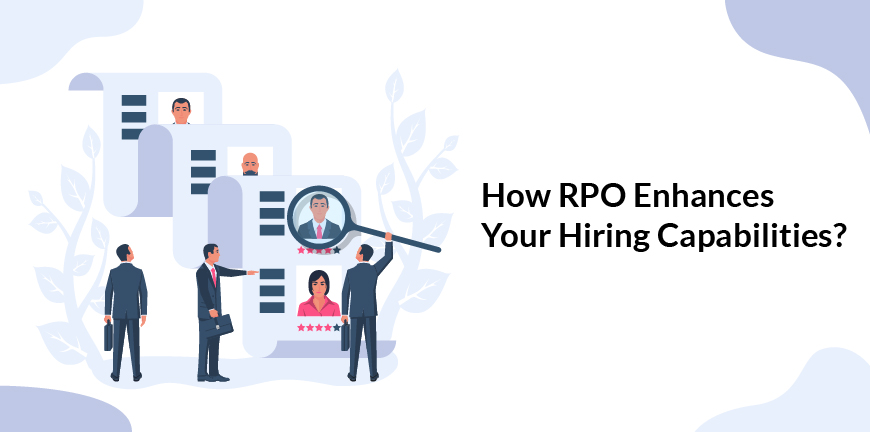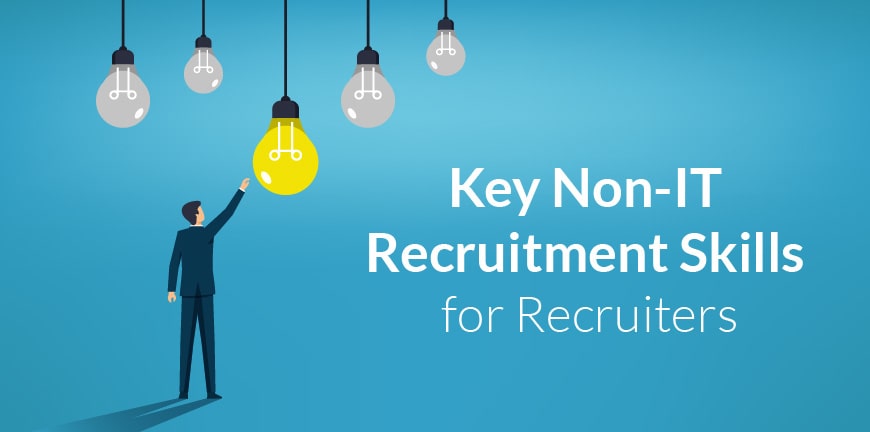
How Can an RPO (Recruitment Process Outsourcing) Enhance your Hiring Capabilities?
22/05/2023
What is Human Resource Outsourcing? (HRO)
25/05/2023As a company grows, it is common for employers to hire managers who can take up responsibility for their teams/departments. But they, unfortunately, most times, do it without delving wholly into the requirements. According to research by Gallup, 82% of businesses tend to make wrong hires for their top management teams. Bad managers are known to have cost millions of dollars to companies, bringing down their productivity and reputation.
About 69% of employers have said that their business profits dived due to bad hires every year. 24% of employers said that a bad hire cost them about 50,000$.
Hiring a new manager can be a daunting task as it is one of the most influential hires that can decide the future of your company.
Who is a Manager?
The answer to this question may be too obvious for us to even answer. However, a manager can be placed under distinct categories based on his way of leading- his function of authority. They are categorized according to their functional role-
- Planning
- Organizing
- Commanding
- Dictating
- Leading
Additionally, when we mention the term manager, our mind automatically thinks of the most common kind- people manager (one everyone reports to in a department or a team).
There are various grades of people managers. Depending on their experience, they are put under different degrees of authority. These levels are categorized as:
Managerial Levels in an Organizational Structure
1. Senior Managers
Senior Managers are the ones who make up the higher echelons of an organization. Typically, the C-suite level employees come under senior management. But do not mistake them for the ones under the board of directors of a company. The board of directors is not responsible for managerial activities.
2. Middle Managers
They make up mid-level management. Employees under this category are regional managers, country managers, Sales managers, etc. They are responsible for overlooking the activities being performed by the members in their department (could even span to different countries, depending on the magnitude of the business operations spread over).
3. Low-level managers
They comprise managers who supervise at lower levels. They may have to supervise the work done by a group of employees working on the same function as they are. For example, in a staffing and recruitment company, they could be Practice leads, HR (Human Resources) specialists, etc. They comprise the front-line managers, team managers, etc.
8 Tips to Hire a Good Manager
You can maximize your chances of hiring the right one for your top managerial spot in your organization by using some of these tips.
1. Consider the big picture- management and governance framework
When hiring for the senior level, as an employer, you need to consider how they fit into the higher management framework. For example, if you are hiring a CEO will they be among the board of directors? If so, how important a part will they be playing? Can you keep conflict of interest between the CEO and other board members at bay? Consider answering these before you take the big step.
2. Create the right candidate profile and Job Description
Creating the right candidate profile by authoring creative job descriptions listing the roles and responsibilities of the job in the best way possible is a crucial step in attracting the right professional. Your executive search level capabilities must be in place to create robust candidate profiles and ensure you target the right candidates.
3. Produce an effective recruitment strategy
The right recruitment strategy must have a detailed plan for hiring the manager which includes candidate profiles. It also must integrate manager recruitment with the larger recruitment goals of the organization.
4. Consider promoting from within the organization
Your existing employees know the ins and outs of your organization. Before deciding to hire externally, consider assessing your top performers from within. If a potential employee is deserving of a higher position, regard it.
This will help you save recruitment costs, reduce the risk of hiring the wrong person, and help in retaining the best of your employee clan, who otherwise might look elsewhere for their next opportunity.
5. Review and enhance your interviewing techniques
A successful manager must have exceptional soft skills, effective communication, goal setting, delegation, and organizational skills. To assess the same, you need to ask the right behavioral questions. It could be contrasted with competency related to the requirements of the job description.
Consider asking questions like-
- Can you tell us about your experience handling a challenging situation in the past?
- Was there a situation where you made a mistake and tried to rectify it later? How did you go about it?
- Was there a situation where you had to persuade someone to agree to a certain thing? How did you do it?
- What are your preferences regarding work projects, work environment, etc?
6. Avoid the common hiring bias
Bias can creep in at any stage of the interview. Both conscious and unconscious bias while assessing candidates could negatively impact the quality of your hire. Some of the most common types of hiring bias are –
Social comparison bias- Dismissing a talented candidate because you feel threatened by their caliber and want to protect your status.
Beauty bias– Hiring the most attractive candidate because you unconsciously assume they are the most qualified.
Conformity bias– Recommending a candidate solely based on other hiring team members’ opinions.
7. Focus your efforts on finding candidates with the right leadership qualities
Leadership qualities you must look for in your potential candidates-
- Strategic perspective- A good manager understands that he needs to step out of the day-to-day operations to reflect on the future path of the organization.
- Trust- Leaders do not micro-manage. A good manager knows that he needs to develop his team to operate with a high degree of autonomy.
- Effective communication- If you want to be a great leader you need to know how to communicate your expectations and thoughts to all levels of employees in the company.
- Leading by example- Preach what you say, and your team will follow.
8. Consider engaging with a recruitment partner
A poor hire can cause damaging consequences. To reduce the risk of hiring the wrong candidate, you can consider engaging with a recruitment partner such as Alp Consulting. Some of the benefits of using a recruitment partner are-
Efficiency– A recruitment partner specializes in recruiting and hiring the right candidates. They have the right venues to source the talent.
Recruiting scope– The right partner will tap into a range of networks, formal and informal, to get you in touch with the most potential pool of candidates.
What are the Benefits of Hiring a Manager?
As an employer, you have been in a managerial position at one point in time. You’re not-so-good experience with your old-school, traditional-thinking employers would have made you even more aware and made you learn how to be good with the ones working for you down the line. You now know that a real manager knows to put in the effort to make a good impact in an organization among his employees.
A good boss translates into hard-working employees, therefore, better productivity.
How a Great Manager Impacts Your Organization?
1. Helps you step back to focus on business growth
As a business grows, it is natural for you to take up a manager to hand over executive responsibilities, as you cannot manage all the duties by yourself. In some cases, the founders hire employees, who multitask initially when the company is small and then assume the role of a manager of a team or department as the company grows. Also, founders cannot play the role of a manager, as their time is better suited to providing top-level strategic guidance. Moreover, a good manager will make sure that he channels his entire focus and energy on enhancing employee engagement and performance management of employees, driving optimum growth and successful outcomes for the organization.
2. Compliance and legal liability management
If you are the founder of a growing business, then you are most likely to face a ton of legal and compliance issues that would require your constant attention, meaning you will be burdened with duties that would often require you to sign off on key reports. A good manager can take these duties off your plate, manage them effectively, and relieve you of the responsibility.
Conclusion
A manager is the most influential hire in your organization. They potentially have the power to make or break your organization. Whether it is offering employee benefits or revamping your interview process, being available to attract the best candidates is crucial. So, tread carefully before you make your final decision.
If you are not sure about hiring the right manager, a recruitment partner can be useful. Alp specializes in the field of recruitment and hiring. Our field of expertise in recruitment includes everything from Executive search to RPO (Recruitment Process Outsourcing). Hit us up if you are looking for the right recruitment partner to help you hire the best manager for your organization.
Contact Us For Business Enquiry

Amit Saproo
Amit Saproo is the Head of Operations at ALP Consulting with nearly 17 years of experience in Executive Search, RPO, Leadership, and IT & Engineering recruitment. He leads nationwide recruitment programs across Technology, BFSI, and R&D domains, driving strategic hiring solutions for diverse client needs. Amit excels in building and managing high-performance teams that deliver scalable, end-to-end recruitment and consulting services.




